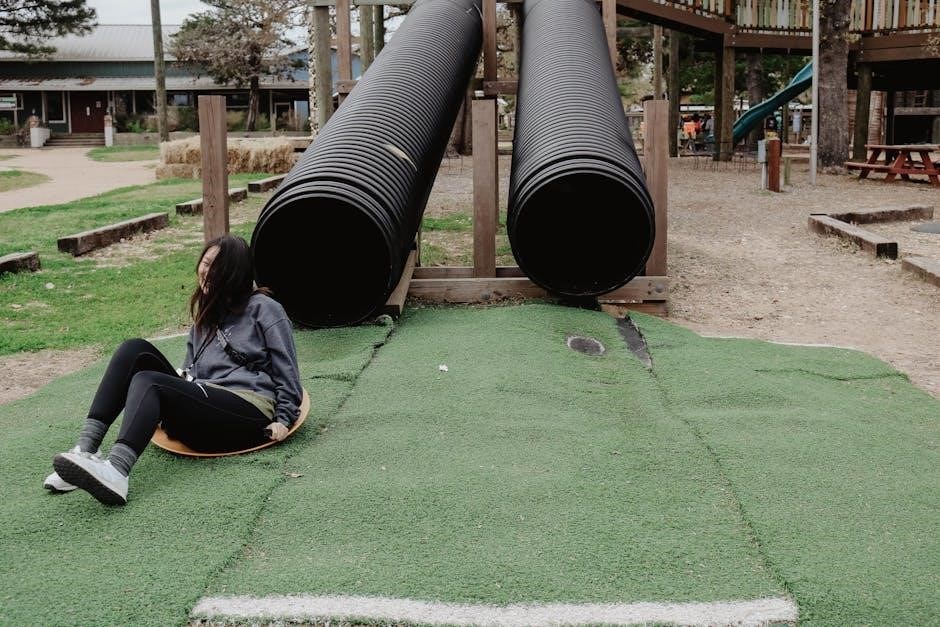A Motion to Transfer Venue in Texas is a legal procedure allowing parties to request a case relocation to a more appropriate court. It ensures fairness‚ convenience‚ and efficiency in legal proceedings by aligning the case with the most suitable jurisdiction.
1.1 Definition and Purpose of a Motion to Transfer Venue
A Motion to Transfer Venue is a formal request to relocate a legal case from one court to another within Texas. Its primary purpose is to ensure the case is heard in the most appropriate jurisdiction for fairness and efficiency. This legal tool addresses issues like improper venue‚ where the current court lacks jurisdiction‚ or when another court is better suited due to convenience for parties and witnesses. It also considers local interest and practical factors‚ aiming to balance judicial efficiency with the interests of all parties involved. By allowing cases to be moved to a more suitable venue‚ this motion helps maintain the integrity and fairness of legal proceedings.
1.2 Importance of Venue in Legal Proceedings
Venue plays a critical role in legal proceedings as it determines the geographic location where a case is heard. Proper venue ensures that cases are adjudicated in courts with jurisdiction over the matter‚ fostering fairness and efficiency. Improper venue can lead to delays‚ increased costs‚ and potential biases. The selection of venue also impacts the availability of evidence‚ witness accessibility‚ and the application of specific laws. Additionally‚ venue decisions can influence the outcome of a case‚ as different jurisdictions may have varying legal interpretations or procedural rules. Ensuring the correct venue is essential for maintaining the integrity of the judicial process and upholding the principles of justice.
Legal Basis for Filing a Motion to Transfer Venue in Texas
The legal basis for filing a Motion to Transfer Venue in Texas is rooted in the Texas Civil Practice and Remedies Code and federal statutes like 28 U.S.C. § 1391‚ ensuring cases are heard in appropriate jurisdictions.
2.1 Relevant Texas Statutes and Rules of Civil Procedure
Texas law provides specific guidelines for filing a Motion to Transfer Venue under the Texas Civil Practice and Remedies Code and the Texas Rules of Civil Procedure. These statutes outline the criteria for determining proper venue‚ ensuring cases are adjudicated in the most appropriate county. Key provisions include Section 15.002‚ which addresses venue in civil suits‚ and Rule 86‚ governing procedural aspects of transferring cases. Compliance with these rules is essential to maintain the integrity and efficiency of legal proceedings in Texas courts.
2.2 Federal Venue Statutes (28 U.S.C. § 1391)
Federal venue statutes‚ particularly 28 U.S.C. § 1391‚ provide the legal framework for determining proper venue in federal courts. This statute applies to cases involving diversity jurisdiction and federal question jurisdiction‚ ensuring that cases are heard in districts with a meaningful connection to the dispute. Under § 1391(a)‚ venue is proper in a district where any defendant resides‚ if all defendants are residents of the state‚ or where a substantial part of the events or omissions giving rise to the claim occurred. These federal provisions often align with Texas state laws but offer additional guidelines for cases in federal courts within Texas‚ ensuring consistency and fairness in venue determinations.

Grounds for Filing a Motion to Transfer Venue
A motion to transfer venue in Texas may be filed based on the convenience of parties and witnesses‚ local interest in the case‚ or improper venue under the law‚ ensuring fairness and efficiency in legal proceedings.
3.1 Convenience of Parties and Witnesses
The convenience of parties and witnesses is a primary ground for filing a Motion to Transfer Venue in Texas. Courts consider factors such as the proximity of key witnesses‚ parties’ residences‚ and the location of evidence. If a significant number of witnesses or evidence are located in another venue‚ transferring the case can prevent undue hardship and reduce costs. Additionally‚ the accessibility of the venue for all parties involved is evaluated to ensure a fair and efficient trial. This factor emphasizes practicality‚ aiming to minimize burdens on participants while maintaining the integrity of the legal process. Courts weigh these considerations carefully when deciding whether to grant the motion.
3.2 Local Interest in the Case
Local interest in the case is a significant factor in determining whether to grant a Motion to Transfer Venue. Courts consider whether the community where the case is pending has a substantial connection to the matter‚ such as where the events occurred or where the parties reside. A strong local interest may weigh against transferring the case‚ as it ensures that the jury pool has familiarity with the facts and can deliver a fair verdict. Conversely‚ if the case lacks a meaningful connection to the current venue‚ transferring it to a more relevant location may be justified. This factor balances community ties with the need for an impartial trial setting.
3.4 Improper Venue Under the Law
Improper venue occurs when a case is filed in a court that lacks jurisdiction or where the facts do not establish sufficient connections to the chosen location. Under Texas law‚ a Motion to Transfer Venue may be filed if the current court is not the proper or convenient forum. This can happen if the defendant is not subject to personal jurisdiction in the selected venue or if the cause of action did not arise there. Courts evaluate whether the venue is proper based on statutory criteria and the parties’ connections to the location. If the venue is deemed improper‚ the court may grant the motion and transfer the case to a more appropriate jurisdiction. This ensures fairness and alignment with legal standards.

The Process of Filing a Motion to Transfer Venue in Texas
Filing a Motion to Transfer Venue in Texas involves preparing and submitting the motion‚ supporting documents‚ and awaiting the court’s decision after the opposing party’s response.
4.1 Preparing the Motion and Supporting Documents
Preparing a Motion to Transfer Venue in Texas requires careful drafting to ensure compliance with legal standards. The motion must clearly state the grounds for transfer‚ such as improper venue or convenience of parties‚ and reference applicable statutes like 28 U.S.C. § 1391 or Texas Rule of Civil Procedure. Supporting documents‚ including affidavits‚ witness lists‚ and evidence of local interest‚ strengthen the request. The motion should demonstrate how transferring the case aligns with the interests of justice and trial efficiency. Proper formatting and adherence to procedural rules are essential to avoid deficiencies and ensure the court considers the motion seriously. This step is critical for a successful venue transfer application.
4.2 Filing the Motion with the Court
Filing a Motion to Transfer Venue in Texas involves submitting the prepared motion and supporting documents to the court where the case is currently pending. The motion must comply with Texas Rule of Civil Procedure and include a clear request for venue transfer. Proper filing ensures the court has jurisdiction to review the motion. The filer must also serve the motion on all opposing parties‚ who may then respond within a specified deadline. Courts often require proof of service and adherence to formatting rules. Failure to meet procedural requirements can result in dismissal of the motion. Timely and accurate filing is crucial for a successful venue transfer application.
4.3 Opposing Party’s Response and Hearing
After filing the Motion to Transfer Venue‚ the opposing party typically has a specified period to submit a written response. This response may argue against the transfer‚ citing reasons such as convenience‚ jurisdiction‚ or fairness. The court may then schedule a hearing to allow both parties to present arguments; During the hearing‚ the judge evaluates the merits of the motion‚ considering factors like witness availability and local interest. The court’s decision is based on legal standards and the evidence presented. If the motion is denied‚ the case proceeds in the original venue; if granted‚ the case is transferred to the requested court. The opposing party’s response and hearing are critical steps in resolving the venue dispute.

Factors Considered by the Court in Transfer Decisions
Courts weigh factors such as witness convenience‚ evidence location‚ and judicial efficiency when deciding venue transfers. The plaintiff’s initial choice and local interest are also significant.
5.1 Plaintiff’s Initial Choice of Venue
Courts generally give deference to the plaintiff’s initial choice of venue‚ as it reflects their preference for where the case should be heard. This deference is rooted in the principle that the plaintiff‚ as the party bringing the action‚ has the first opportunity to select a forum. However‚ this preference is not absolute and can be overridden if other factors‚ such as witness convenience or the location of evidence‚ strongly favor a different venue. Texas courts balance the plaintiff’s choice against practical considerations to ensure a fair and efficient trial. This balance is critical in determining whether a transfer is warranted.
5.2 Jurisdiction and Forum Non Conveniens
In evaluating a motion to transfer venue‚ Texas courts consider jurisdictional issues and the doctrine of forum non conveniens. Jurisdiction determines whether a court has the authority to hear a case‚ while forum non conveniens allows a court to transfer a case to a more convenient forum‚ even if it has jurisdiction. Under federal law‚ such as 28 U.S.C. § 1391‚ courts assess whether the current venue is “convenient” and “fair.” Texas courts often prioritize jurisdictional clarity and the balance of convenience for all parties. Recent cases in Texas‚ such as those involving tech companies‚ highlight how jurisdictional arguments can influence transfer decisions‚ ensuring trials are held in the most appropriate forum.
5.3 Practical Considerations for Trial Efficiency
Practical considerations for trial efficiency often weigh heavily in venue transfer decisions. Courts evaluate factors like witness availability‚ evidence location‚ and the ability to conduct timely proceedings. In Texas‚ judges may consider the caseload and resources of the current court compared to the proposed venue. For instance‚ transferring a case to a court with specialized expertise‚ such as intellectual property cases in the Eastern District of Texas‚ can streamline the process. Additionally‚ the proximity of key evidence and witnesses reduces delays and costs. Ensuring trial efficiency aligns with the interests of justice‚ making practical considerations a pivotal factor in transfer decisions‚ as seen in recent cases involving major companies like Apple and Google.
Recent Cases and Rulings on Venue Transfer in Texas
Recent Texas cases highlight evolving venue transfer trends‚ with courts granting transfers to districts like Northern California‚ impacting major companies such as Apple and Google.
6.1 Notable Decisions from Texas District Courts
Texas district courts have issued significant rulings on venue transfers‚ particularly in cases involving major tech companies like Apple and Google. In one notable decision‚ the Eastern District of Texas granted Google’s motion to transfer venue to California‚ citing convenience of witnesses and evidence. Similarly‚ Apple faced venue challenges in the Western District of Texas‚ with courts emphasizing the importance of balancing plaintiff preferences with practical considerations. These rulings highlight the courts’ discretion in weighing factors like local interest‚ jurisdictional ties‚ and trial efficiency. Such decisions underscore the evolving landscape of venue transfer law in Texas and its impact on both state and federal proceedings.
6.2 Federal Circuit Court Rulings on Venue Transfer
The Federal Circuit Court has played a significant role in shaping venue transfer law‚ particularly in patent cases. In a notable decision‚ the court granted a writ of mandamus‚ ordering the Eastern District of Texas to transfer a case to another jurisdiction. This ruling emphasized the importance of considering factors like witness convenience‚ evidence availability‚ and judicial efficiency. Federal courts often transfer cases out of the Eastern District of Texas‚ highlighting the balance between plaintiff preferences and practical considerations. These decisions underscore the federal judiciary’s commitment to ensuring cases are adjudicated in the most appropriate venues‚ aligning with statutory guidelines and promoting fairness in legal proceedings nationwide.

Drafting a Motion to Transfer Venue in Texas
Drafting a motion requires precise language‚ citing relevant statutes‚ and clear reasons for transfer. Include jurisdictional grounds‚ convenience of parties‚ and attachments like affidavits or contracts. Templates are available online for guidance‚ ensuring compliance with Texas Civil Procedure Rules and federal standards‚ as seen in recent cases like Apple’s venue transfer request in the Western District of Texas.
7.1 Essential Elements of the Motion
Drafting a motion to transfer venue in Texas requires including specific elements to ensure compliance and effectiveness. The motion must clearly state the legal grounds for transfer‚ such as improper venue under Texas Civil Practice & Remedies Code § 15.002 or convenience of parties and witnesses under 28 U.S.C. § 1391. It should reference relevant statutes‚ provide factual support‚ and demonstrate why the proposed venue is more appropriate. The motion must also include a certificate of service‚ proving it was properly served to all parties. Additionally‚ attachments like affidavits or contracts may be included to strengthen the argument. Proper formatting and adherence to procedural rules are critical for the court to consider the motion favorably.
7.2 Sample Language and Templates
A sample motion to transfer venue in Texas typically begins with a title like “MOTION TO TRANSFER VENUE” and includes the court name‚ case number‚ and party names. The language should state the legal basis for the transfer‚ such as improper venue or convenience under Texas Civil Practice & Remedies Code § 15.002 or 28 U.S.C. § 1391. Templates often include sections for factual allegations‚ legal arguments‚ and a prayer for relief. For example: “Pursuant to § 15.002‚ this court lacks venue‚ and the case should be transferred to [proposed venue].” Attachments like contracts or affidavits may be included to support the motion. Proper formatting and compliance with local rules are essential for procedural validity.

Best Practices for Litigants and Attorneys
Attorneys should strategically evaluate venue transfer opportunities early‚ ensuring compliance with procedural deadlines and thoroughly documenting convenience factors‚ witness availability‚ and jurisdictional merits to strengthen their position.
8.1 Strategic Considerations in Filing the Motion
Filing a Motion to Transfer Venue in Texas requires careful strategic planning. Attorneys must assess the case’s specific circumstances‚ such as the convenience of parties and witnesses‚ to determine if transferring the venue will benefit their client. Timing is critical; motions must be filed promptly to avoid waiver issues. Additionally‚ the strength of the arguments‚ including jurisdictional grounds and local interests‚ should be evaluated. Attorneys should also consider the court’s discretion and potential opposition from the other party. A well-timed and well-supported motion can significantly impact the case’s outcome‚ ensuring a fair and efficient trial process for all involved parties.
8.2 Ensuring Compliance with Procedural Requirements
Ensuring compliance with procedural requirements is crucial when filing a Motion to Transfer Venue in Texas. Attorneys must adhere to the Texas Rules of Civil Procedure‚ including deadlines for filing the motion and submitting supporting documents. Proper verification and service of the motion on all parties are essential to avoid procedural defects. The motion must be accompanied by affidavits or evidence supporting the grounds for transfer‚ such as witness availability or jurisdictional issues. Failure to meet these requirements may result in the court denying the motion without consideration of its merits. Compliance ensures the motion is properly presented and maintains the integrity of the legal process.



